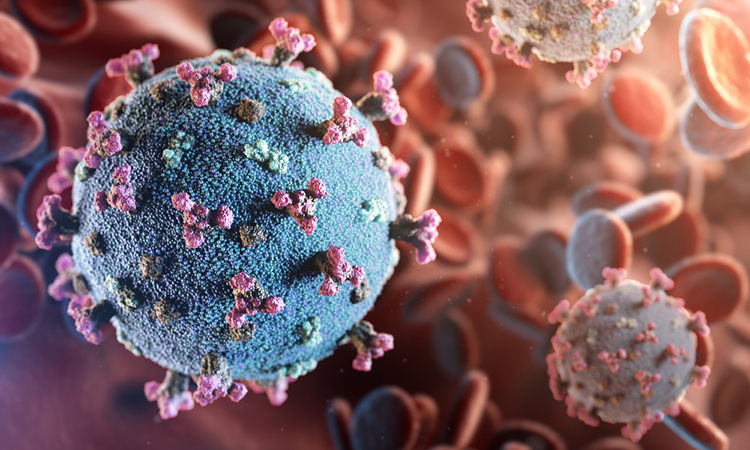Scientists propose treating SARS-CoV-2 with sofosbuvir and remdesivir
Posted: 7 October 2020 | Victoria Rees (Drug Target Review) | No comments yet
Researchers have posited that SARS-CoV-2 could be combatted by sofosbuvir, in combination with other antivirals such as remdesivir.


Researchers have suggested that sofosbuvir could be used in combination with other antivirals to combat SARS-CoV-2, the virus that causes COVID-19.
The team, from Columbia University School of Engineering and Applied Science, US, say that SARS-CoV-2 has an exonuclease-based proofreader to maintain its viral genome integrity. Therefore, any effective antiviral targeting the SARS-CoV-2 RNA-dependent RNA polymerases (RdRps) must display a certain level of resistance to this proofreading activity.
The researchers revealed that sofosbuvir-terminated RNA is more resistant to the proofreader of SARS-CoV-2 than remdesivir-terminated RNA. They say that the results of this study support the use of the US Food and Drug Administration (FDA)-approved hepatitis C drug Epclusa (sofosbuvir/velpatasvir) in combination with other drugs in COVID-19 clinical trials.
“We found that the RNA terminated by sofosbuvir resists removal by the exonuclease to a substantially higher extent than RNA terminated by remdesivir, another drug being used as a COVID-19 therapeutic,” said the team’s lead Professor Jingyue Ju.
Last January, before COVID-19 reached pandemic status, the team posited that Epclusa might inhibit SARS-CoV-2. Their reasoning was based on the analysis of the molecular structures and activities of hepatitis C viral inhibitors and a comparison of hepatitis C virus and coronavirus replication.
In a subsequent study, the researchers demonstrated that the active drug sofosbuvir triphosphate is incorporated by SARS-CoV and SARS-CoV-2 polymerases, shutting down the polymerase reaction. Other investigators have since demonstrated the ability of sofosbuvir to inhibit SARS-CoV-2 replication in lung and brain cells; currently, COVID-19 clinical trials with a number of hepatitis C drugs such as Epclusa and the combination of sofosbuvir and daclatasvir (similar to velpatasvir) are ongoing in several countries.
Ju noted that a recent pre-print from the University of California, Berkeley, US, indicates that a combination of remdesivir and Epclusa increases remdesivir’s efficacy 25-fold in inhibiting SARS-CoV-2: “These results offer a molecular basis supporting the study of Epclusa in combination with remdesivir for COVID-19 clinical trials.”
The study was published in Scientific Reports.
Related topics
Drug Development, Drug Leads, Drug Targets, RNAs, Target Molecule, Therapeutics
Related conditions
Covid-19
Related organisations
Columbia University, University of California (UC) Berkeley
Related people
Professor Jingyue Ju








